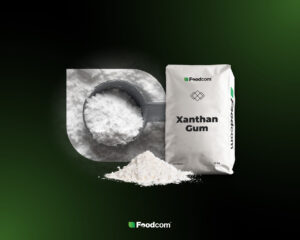- Rising prices for monocalcium phosphate and dextrose are driven by raw material shortages and logistical disruptions.
- Indonesia is promoting sugar cane cultivation to reduce imports and increase bioethanol production.
- The severe shortage of truck drivers in Europe is having a significant impact on logistics and trade.
Hello Partners!
Welcome back to our Newsletter!
As we enter the second quarter of 2024, global markets are adapting to the challenges and opportunities presented by geopolitical tensions, supply chain disruptions and changing consumer demands. Key sectors are experiencing fluctuating prices and strategic shifts impacting commodities such as monocalcium phosphate and dextrose, while industries such as European logistics, Brazilian renewables and Indonesian agriculture are undergoing significant developments.
Let’s take a look at what else is happening on the market!
Products of the Week!
Monocalcium Phosphate
The Monocalcium Phosphate market is facing rising prices in the second quarter of 2024 due to extensive replenishment and several supply chain disruptions. Key drivers of rising costs include geopolitical tensions in West Asia impacting shipping routes and logistical challenges in the US, such as the recent bridge collapse and bottlenecks on the Mississippi River. In addition, the rising cost of the raw material phosphoric acid continues to drive up the price of Monocalcium Phosphate, causing US buyers to rush to secure supplies in the face of increasing market uncertainty.
Dextrose
Dextrose prices are rising due to the rising cost of corn starch and raw corn as well as a USDA report indicating reduced corn planting. These factors, along with supply chain disruptions such as the recent bridge collapse in Baltimore, are driving up corn futures prices and directly impacting the cost of Dextrose. In addition, geopolitical tensions in West Asia are complicating transportation logistics, leading to higher costs and impacting the affordability of the product globally.
Xanthan Gum
The market for Xanthan Gum is growing, mainly due to the demand for gluten-free and clean label products in various sectors such as food, beverages and personal care. Despite its essential role as a thickening and stabilizing agent, Xanthan Gum is under price pressure due to cheaper alternatives such as corn starch and is also affected by geopolitical and logistical challenges that could impact supply stability and costs. Despite these challenges, the market’s growth prospects remain strong, even as it responds to external economic and geopolitical changes.
NEWS
Truck driver shortage in Europe affects trade and logistics
The European shipping industry is struggling with a severe shortage of truck drivers, which is hampering the expansion and productivity of companies across the region. More than half of trucking companies in the EU, Norway and the UK are unable to grow due to this crisis, which could widen to a deficit of over 745,000 drivers by 2028. This shortfall is impacting revenues and has contributed to a 6.1% drop in throughput in the port of Rotterdam last year, reflecting the wider challenges facing global trade, exacerbated by geopolitical unrest and economic slowdowns.
Green Energy Park secures $30 million for hydrogen plant in Brazil
Green Energy Park has secured $30 million in Series A financing and the rights to the hydrogen port facilities in Luis Correia, Brazil, taking a decisive step towards building one of the largest hydrogen production facilities in the world. Founded in 2023, the company aims to become a leader in the production of renewable hydrogen and is initially focusing on the favorable conditions in northeastern Brazil. The plant in Piaui, the first of the Green Energy Park, will have a capacity of 10.8 GW for electrolysers and will specialize in hydrogen and its derivatives. This initiative supports global decarbonization efforts, particularly in the industrial and transport sectors. Bart Biebuyck, CEO, highlighted the project’s alignment with global climate goals and emphasized the urgent need for action to achieve Net Zero by 2050.
Indonesia wants to grow sugar cane for fewer imports and more bioethanol
Indonesia, the world’s largest sugar importer, plans to increase sugarcane cultivation in Papua to reduce dependence on imports and develop a sugar-based industry, including bioethanol production. This initiative, announced by Investment Minister Bahlil Lahadalia, comes at a time when domestic sugar prices have risen 24% year-on-year due to last year’s drought which affected yields. The government has earmarked 2 million hectares in Merauke, South Papua, for a new industrial estate that will include sugarcane plantations, mills, a bioethanol plant and a biomass power plant. The project will start with two million seedlings from Australia, with local companies, including state-owned enterprises, taking the lead. The move is part of a broader strategy to achieve sugar self-sufficiency by 2027.









